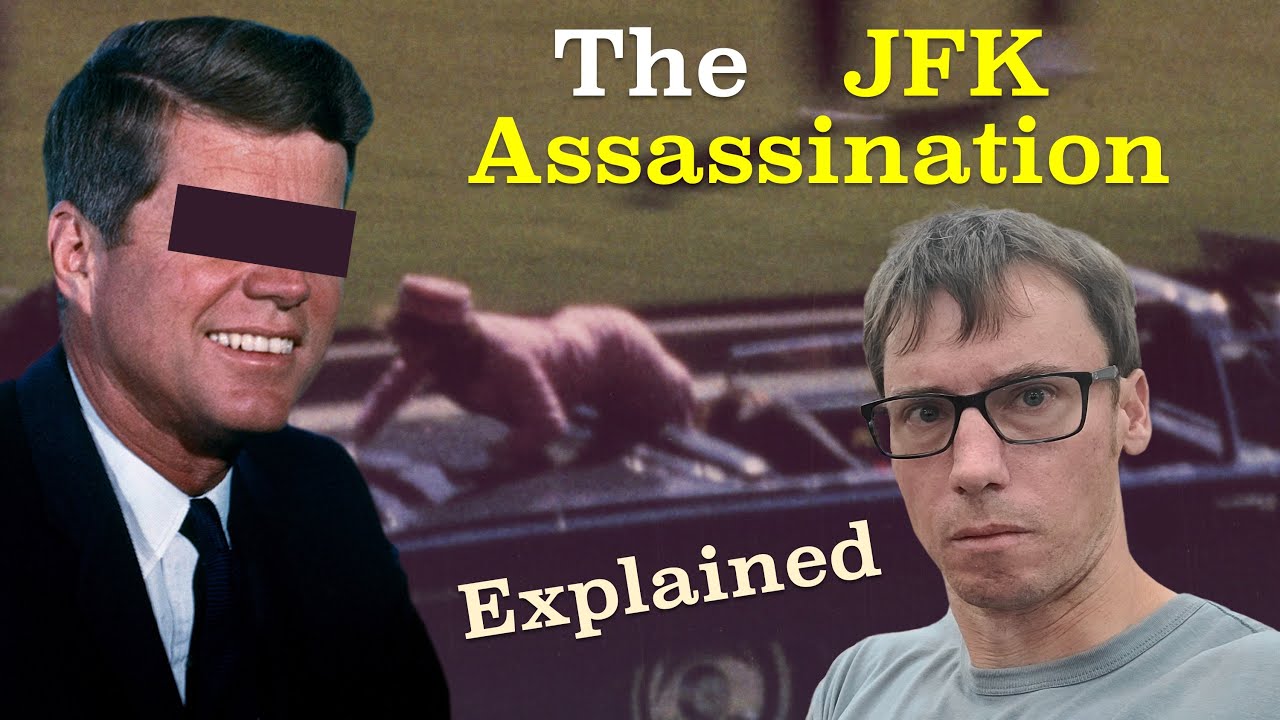Eisenhower Speaks About Murder of JFK (1963)
Summary
TLDRIn this poignant transcript, General Eisenhower discusses the shock and grief following the assassination of President Kennedy. Expressing heartfelt sympathy for Mrs. Kennedy, he emphasizes the unity and strength of the American people in the face of tragedy. Reflecting on past political assassinations, Eisenhower acknowledges the unpredictable nature of such events but reassures the public about national security. He also shares his personal response to the news, including his plans for the day and his faith in the resilience of the American people. The global reaction to the assassination is also considered, with Eisenhower offering a measured perspective on international reactions.
Takeaways
- 😀 The nation is in shock and dismay following the assassination of the president, with widespread grief shared by citizens and leaders alike.
- 😀 The general expresses sympathy for Mrs. Kennedy, offering thoughts and prayers for her during this tragic time.
- 😀 The entire American population is expected to join in grief and indignation, uniting in support of the government and the nation's future.
- 😀 The general shares that he learned about the assassination during a meeting for the United Nations, where news was first relayed with hope that the president was still alive.
- 😀 There was a moment of silence for the president during the meeting, with each participant offering a silent prayer.
- 😀 Despite the uncertainty surrounding national security, the general reassures that the nation is secure and that people will not be easily frightened or confused.
- 😀 Previous political assassinations (Lincoln, Garfield, McKinley) have had lasting impacts, but the nation continues to persevere in times of tragedy.
- 😀 The general emphasizes that the American people are resilient, with a strong sense of loyalty and common sense, preventing them from being easily overwhelmed by such acts of violence.
- 😀 Internationally, the assassination will likely cause confusion and concern, especially in more stable and peaceful nations.
- 😀 The general compares the current situation to the assassination of Archduke Ferdinand, which was a significant factor in the start of World War I, although the general remains uncertain about the long-term consequences.
- 😀 Despite the tragedy, the general expresses confidence that Americans will remain calm, continue to observe freedoms, and not be deterred by the actions of a single individual.
Q & A
How does the speaker express his feelings about the assassination of the president?
-The speaker shares a sense of shock and dismay, emphasizing the despicable nature of the act and offering sympathy to Mrs. Kennedy, the First Lady, during this difficult time.
What does the speaker believe the American people will feel in response to the assassination?
-The speaker believes the American people will not only express grief but also indignation at the act. He is confident that the nation will stand united behind the government.
What was the situation when the speaker first received the news about the assassination?
-The speaker was attending a United Nations meeting when a member of the meeting came back and shared the news. At that point, they did not know the president was dead, but they later received confirmation.
How did the members of the meeting respond to the initial news about the president's condition?
-At the request of the chairman, the group paused for a moment, and each member silently prayed for the president, hoping for his recovery.
Is there concern over national security following the assassination?
-The speaker reassures that national security is not a concern. He believes the American people, as well as the government, will remain secure.
How does the speaker view the impact of past political assassinations on the course of events?
-The speaker reflects on past assassinations, noting that they have historically influenced the political landscape. For example, the assassinations of Presidents Lincoln, Garfield, and McKinley led to significant political changes, such as the ascension of Vice Presidents to the presidency.
How does the speaker feel about the unpredictability of political assassinations in America?
-The speaker finds it inexplicable that such events occur in America, a country where loyalty and freedom are fundamental. He attributes the acts to psychopathic individuals and suggests there's little that can be done to prevent them.
What is the speaker's perspective on how other nations will react to the assassination?
-The speaker anticipates that other nations, particularly civilized countries, will be bewildered by the event. He draws a parallel to the assassination of Archduke Ferdinand, which contributed to World War I, though he is uncertain how the current situation will unfold.
What does the speaker suggest will be the American people's response in times of crisis?
-The speaker expresses confidence in the American people's resilience and common sense. He believes that despite the tragic event, they will not be easily stampeded or bewildered.
What are the speaker's immediate plans following the assassination?
-The speaker has canceled his dinner plans and intends to go home. He emphasizes that he will be available if needed for any purpose in the aftermath of the event.
Outlines

此内容仅限付费用户访问。 请升级后访问。
立即升级Mindmap

此内容仅限付费用户访问。 请升级后访问。
立即升级Keywords

此内容仅限付费用户访问。 请升级后访问。
立即升级Highlights

此内容仅限付费用户访问。 请升级后访问。
立即升级Transcripts

此内容仅限付费用户访问。 请升级后访问。
立即升级5.0 / 5 (0 votes)






